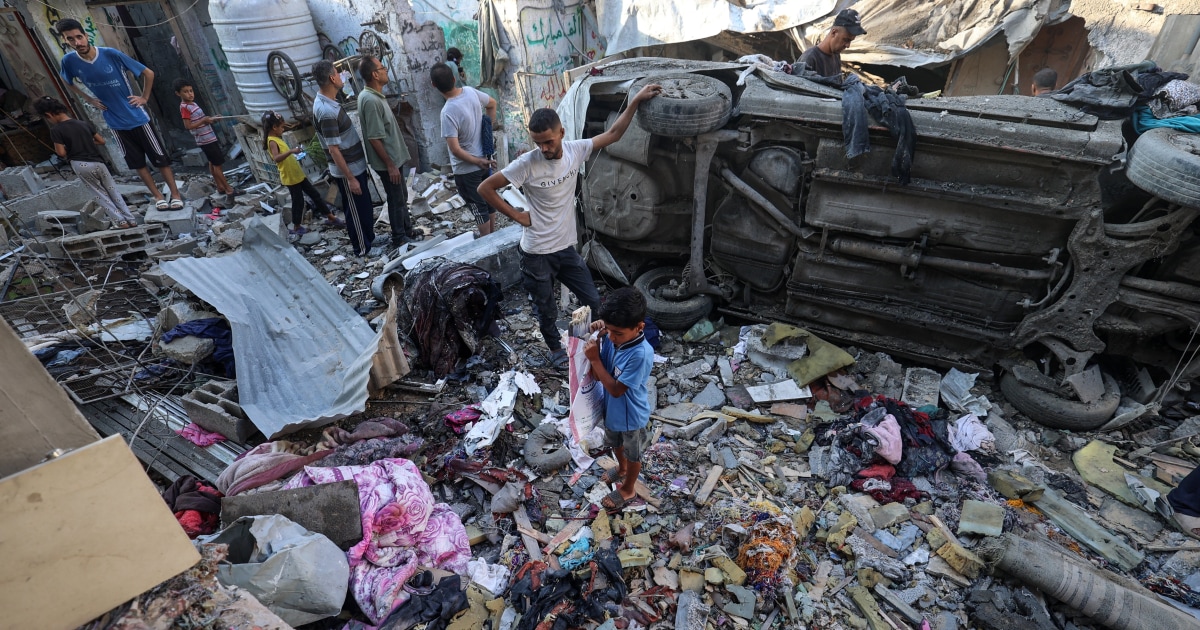Negotiations aimed at concluding the ongoing conflict in Gaza have been described as “intense and productive” by former President Donald Trump. In a post on Truth Social, Trump stated that discussions with Arab leaders in New York would “continue as long as necessary” to reach what he termed a “Successfully Completed Agreement.”
These talks come as the region grapples with a severe humanitarian crisis, exacerbated by ongoing violence. Trump highlighted that discussions had been underway for four days and expressed optimism about achieving a lasting resolution, which he called “PERMANENT AND LONGLASTING PEACE!”
While specific details about the proposed agreement remain undisclosed, Trump has previously emphasized that any deal should include the return of all remaining Israeli hostages held by Hamas.
Continued Hostilities and Political Stalemate
Efforts to establish either a complete cessation of hostilities or a temporary ceasefire have faced significant obstacles. Both Israel and Hamas have accused each other of failing to uphold agreements, complicating the peace process. Israeli Prime Minister Benjamin Netanyahu reiterated his commitment to continue military operations until all hostages are returned and Hamas is disarmed. His recent speech at the United Nations General Assembly was marked by a defiant tone, especially after experiencing a mass walkout from diplomats during his address.
On October 7, 2023, Hamas launched an attack that resulted in the deaths of 1,200 people in Israel and the abduction of 251 hostages, escalating tensions significantly. In response, Hamas has stated it would only release the remaining hostages in exchange for a lasting ceasefire and the withdrawal of Israeli forces.
Trump remarked that there is “more Goodwill and Enthusiasm for getting a Deal done” than he has seen in decades, indicating a potential shift in diplomatic relations. His special envoy, Steve Witkoff, confirmed that Trump presented proposals to Arab nations, including Saudi Arabia, Qatar, and Egypt, during the assembly.
Regional Dynamics and Humanitarian Concerns
During these discussions, Sheikh Abdullah bin Zayed, the Minister of Foreign Affairs for the United Arab Emirates, emphasized the urgent need for a permanent ceasefire in Gaza. His office has stressed the importance of achieving a two-state solution, even as Israel continues to pursue a controversial settlement plan that could further complicate Palestinian aspirations for statehood.
UAE officials have previously warned that any annexation of the West Bank would be a red line, potentially jeopardizing future recognition of Israel. Trump has echoed this sentiment, stating, “It’s not going to happen,” in reference to Israeli plans for annexation.
The humanitarian situation in Gaza remains dire, with health officials reporting that Israeli operations have resulted in over 65,000 deaths in the enclave over the past 23 months. The ongoing conflict has displaced approximately 90% of the population, creating a catastrophic humanitarian crisis.
In September, Israel initiated a ground offensive in Gaza City, leading to widespread displacement. Doctors Without Borders announced that it had to cease operations in the northern region due to encirclement by Israeli forces, underscoring the challenges faced by humanitarian organizations in the area.
The situation in Gaza has dominated discussions at the United Nations this week, as Palestinian President Mahmoud Abbas addressed the assembly via video link. Abbas condemned the violence against Palestinians, describing it as “a war of genocide, destruction, starvation, and displacement,” while distancing the Palestinian people from Hamas’ actions on October 7.
As negotiations continue, the focus on achieving peace in Gaza remains critical, with international leaders and organizations closely monitoring the developments.
